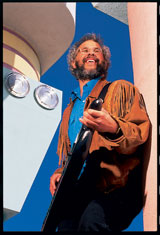By Steve Oppenheimer
(June 2002)
In Aesop’s fable “The Tortoise and the Hare,” the plodding tortoise outraces the speedy hare because the former is steady, hardworking, and indefatigable, whereas the latter is arrogant and takes his ease, certain that victory is inevitable. The hare’s overconfidence is his downfall; he can’t imagine that he could lose. The moral of the story is “slow and steady won the race,” which is to say that persistence will overcome talent tainted by arrogant laziness.
Of course, not all plodders are hardworking winners, and not all speedsters are overconfident losers. However, in many cases, such people can’t sustain their initial success because they get lazy or burn too many bridges.
Obviously, egomaniacs are not just found among entertainers, although musicians and actors have a well-deserved reputation for behaving like spoiled brats. You would think, though, that we would be a bit more humble in a business where so many careers crash and burn in short order. The music industry is small, especially when you get down to the pros, and it is wise to heed the words of the late Lowell George of Little Feat: “The people you meet on the way up, you might meet up with on the way back down.” It pays to be respectful, humble, and cooperative.
Arrogance isn’t confined to one’s personal talent, though. Even in this age of diversity, one hears musicians put down genres they don’t care for. I’ve heard jazz musicians dismiss country musicians, country and rock players put down “out” jazz, and dedicated improvisers criticize classical musicians who play only written scores.
That’s bunk, of course. It takes talent and experience to create music at a high level. You don’t have to like or even try to understand all music, but if you don’t grasp a genre, you might be best served to withhold judgment about its practitioners as a class.
That brings us to this month’s cover story on loop sequencing (“Loop-a-palooza!” on p. 50). Although most loop-sequencing tools are relatively new, the concept of pattern-based composition is ancient, beginning long before tape loops, perhaps in prehistoric drum circles.
Now, loop-based music — a broad term that encompasses numerous musical genres — isn’t everyone’s cup of tea. I like listening to some of it, and I am familiar with many of the techniques involved. But I admit that I only occasionally listen to loop-based music, and I have no interest in creating it. However, I take issue with those who think that loop-based composition and performance are lesser skills than playing an instrument and composing in more traditional ways. To a loop-meister, a groove machine, software and controllers, or even the entire studio is an instrument. And master loopers can be awesome improvisers. The best loop-based music is among the most vibrant music on today’s scene.
So remember the tortoise and the hare. If you’re into the looping scene, you’re in front of the musical mainstream. Don’t be like the hare and let the thrill go to your head. Be patient, hone your skills, and resist the temptation to consider yourself or your work superior because it’s cutting edge. If you cleave to more traditional genres, fine. But don’t dismiss looping or, for that matter, electronica in general.
You see, music is not a race, and although we should heed the lesson of the fable, we are not tortoises or hares. We each can reach our goals at our own pace as long as we remain dedicated, humble, and hardworking.
